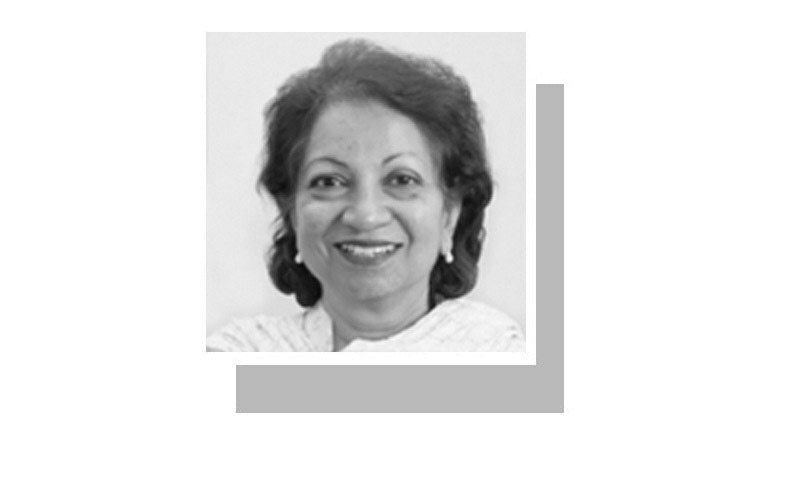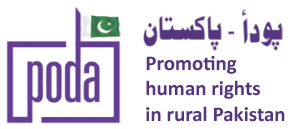
Zeba Sathar Published August 19, 2023
RIZWANA, a young teenager and uneducated sister of nine siblings, is just one of millions of girls born into poor households across Pakistan. While the tragedy that is now flashed in the media might, fortunately, save whatever is left of Rizwana’ s abused and damaged mental and physical being, millions of girls born into poor households across the country face a similar situation. Unfortunately, many of them will not escape nor even be noticed.
As Pakistan celebrated 76 years of independence earlier this week, we should have been asking ourselves whether it occurs to many fortunate Pakistanis, who think about getting foreign passports to escape the heat, the taxes, and the nuisance that is Pakistan, to look around them and see how the other half lives, in fact, barely survives.
Women and girls suffer the most. They have no hopes or dreams — not because they cannot but because our society has already decided their fate, depriving them of their rights. The worst fate is the lot of the poorest women.
Rizwana, if she were allowed a voice, would ask the state why she was one among several unwanted children in her family. She would then ask why she did not go to school at the age of five and learn to read or write and why she did not have a chance to go on to secondary school.
Rizwana would ask the state why she was sent hundreds of miles away from her parents and siblings to a judge’s family. Above all, she would ask the state what gave her employer (or so-called protector or guardian) the right to deny her a minimum wage, and instead, to mete out the abuse that left the poor girl close to death.
If matters continue, Rizwana’s parents will have no choice but to send their children to work.
Does the blame lie with the parents? Each year, Pakistani women go through 9m pregnancies, half of which are unwanted or mistimed. They face pregnancies without having the power to delay or avoid them, either because they do not know how to negotiate with their husbands or lack information on contraception. Most end up with an unwanted abortion or, worse, a baby that is not welcome, and is, in fact, considered a huge burden on the family, especially if it is a girl.https://www.dawn.com/news/card/1742435
Millions of women, especially those who are too young or too poor to think of alternatives end up having unwanted pregnancies out of “majboori” and lack of options.
Does the blame lie with society and the state? The Constitution is a guarantor, not just in words but also in spirit, of the rights of children to survival, security, safety and education. When we do not provide families with these resources, we are cruelly ignoring Article 25-A that gives the 20 million-plus out-of-school children the right to primary education.
While we still quibble about whether family planning and the right of women to plan each pregnancy are permitted by Islamic injunctions, other Muslim states like Bangladesh, Iran and Indonesia simply disseminate information and provide family planning service options as state policy. Children from families too poor to educate them are not in the wrong — it is we who are violating the Constitution of Pakistan by not providing them their right.
Does the blame lie with the judiciary? Surely, the judiciary is the primary custodian of human rights, and the forum where Rizwana should and must get justice.
The Law and Judicial Commission held a meeting on ‘Calibrating Population and Resources’ last month. The discussion centred on the rights of women and girls and families to have the number of children they want and on the balance to be created between resources and numbers.
The two-day meeting was well attended by the judicial fraternity. Can we expect them to rise to the occasion and take action on the most basic right, i.e, to be born with full rights including primary education that currently is being denied to 20m children in Pakistan?
Does the blame lie with intellectuals, influencers and development practitioners? If Rizwana had been born in any of our neighbouring countries (apart from Afghanistan), she would have been entitled to free primary education, and her parents would have the choice to educate their children rather than send them to work.
Above all, there would be labour laws that would protect her from abuse at work, and in fact, being employed as a child. But development fads move fast, from schooling to nutrition to climate resilience, without ever going deep or long enough to eliminate basically flawed solutions.
Bureaucrats, technocrats and other Pakistanis with influence must remain focused on urgent national priorities such as 4m unwanted pregnancies and over 20m out-of-school children.
One can only hope we will give some thought to the gaping inequalities between the poor and rich. If we allow things to continue, Rizwana’s family will have no choice but to send their children to work.
An accident of birth leads millions of children to suffer gross violations that we would never endure for our own children. We hope the media, instead of devoting prime-time discussions to when elections, as per the Constitution, must be held, also turns to the most fundamental violation of the Constitution that underlies Rizwana’s fate.
While the caretaker government has limited powers to undertake new reforms, it can begin to include the rights of families, women and children to health and education on its priority list.
The government can do more by directing greater resources towards lowering the numbers of unwanted children through public information and family planning services.
Above all, the under-resourced regions of Pakistan desperately require additional means to improve living conditions that have now reached an all-time low, as manifested in the painful story of Rizwana.
The writer is Country Director, Population Council.
Published in Dawn, August 19th, 2023
